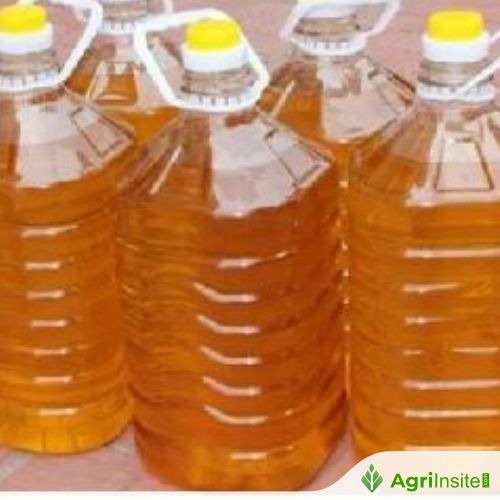Bangladesh : Cooking Gets Cutting-Edge

The edible oil industry is evolving, focusing on health and sustainability. Modern innovations prioritize heart-friendly oils rich in omega-3, omega-6, and vitamins A, D, E, while reducing trans-fats. These oils meet consumer demand for nutrition, high cooking stability, and eco-friendly processing.
As people strive for healthier living, the role of edible oils in daily diets has come under scrutiny. Our everyday kitchen staple – edible oil – has undergone a remarkable transformation to meet the demands of health-conscious and modern consumers. With the growing emphasis on nutrition and sustainability, the edible oil industry has embraced innovation in formulation, processing, and packaging. In recent trends, edible oils with heart-healthy properties, high omega-3 content, and ability to withstand high cooking temperatures without releasing harmful chemicals are highly valued by consumers.
Essential nutrients like omega-3 and omega-6 fatty acids, along with vitamins A, D, and E, are critical for maintaining heart health, boosting immunity, and supporting overall well-being. However, traditional oils often lack these essential nutrients and may even contain unhealthy trans-fats. This gap has driven the need for innovation, pushing manufacturers to rethink and enhance edible oils. Innovation in edible oils addresses not just health concerns but also caters to the demand for functionality, convenience, and sustainability to keep in pace with the rapidly evolving market demand.
Modern oils are now fortified with essential nutrients such as omega fatty acids for cardiovascular health and antioxidants to combat free radicals. Adding vitamins like A, D, and E transforms everyday cooking oils into functional health products that support immunity and vitality.
“TEER is the first brand to fortify soybean oil with vitamin A, D and E. Our production process involves world’s top notch NRT (Nutrients Retained Technology) to keep all the natural nutrients intact. We are the only edible oil brand in Bangladesh that refines and bottles canola oil,” said Md. Abdulla Al Mamun Fahim, Deputy Brand Manager, City Group.
Due to advancements in processing and refining technology and growing consumer demand, the availability of edible oil options in the Bangladeshi market has increased significantly compared to a decade ago. Modern hi-tech and healthy refining process allows all the necessary nutritional values to be intact. Edible oil brands including TEER, Sun, Fresh, ACI, Rupchanda, Fortune, Bashundhara, Pusti are offering fortified soybean, sunflower and rice bran oil for local consumers. Apart from mustard oil, vegetable oils, such as, canola and peanut oil are also being increasingly used due to their health benefits, light flavor and high-smoking point, making them ideal for stir-fry or deep-frying.
Blended Oils
Blended cooking oil is a combination of various oils, mixed to deliver a desired flavor, nutritional balance, or cooking efficiency. By combining the best properties of multiple oils, such as rice bran and sunflower oil, manufacturers create balanced products that cater to both taste and health. These blends often improve the smoke point, making them versatile for a variety of cooking methods.
Targeted Health Benefits
Modern manufacturers are producing oils with specific health goals in mind, such as reducing cholesterol levels, improving digestion, or boosting energy. These functional oils align with the rising trend of personalized nutrition.
Advanced Extraction Techniques
Techniques like cold-pressing preserve the natural nutrients and flavors of the oil, offering a healthier alternative to traditional heat-based methods. Solvent-free extraction minimizes chemical residues, making the oil safer for consumption.
Refinement Improvements
Modern refining processes focus on reducing trans-fats while enhancing clarity and taste. Innovations in degumming and deodorizing not only improve the oil’s quality but also ensure it retains its nutritional value.
Sustainability in Processing
To reduce environmental impact, manufacturers are adopting greener practices, such as using renewable energy during production and sourcing oils from sustainable crops like soybeans and sunflower seeds. These efforts address growing consumer concerns about environmental responsibility.
Smart Packaging
Opaque containers protect oils from light exposure, preventing nutrient degradation and extending shelf life. Reusable or biodegradable packaging meets the demands of eco-conscious buyers.
“The new agronomic bottle of TEER Soybean Oil is designed in a way that controls the oil flow while pouring. The special design enables the user to open the bottle with just a single twisting,” mentioned Md. Abdulla Al Mamun Fahim from City Group.
Marketing with Packaging: Clear labeling that highlights health benefits, certifications (like organic or non-GMO), and sustainability credentials helps consumers make informed choices. Packaging has become a vital tool for building trust and brand loyalty.
Future trends
Plant-based oils designed for vegans or oils infused with flavors specific to global cuisines are gaining popularity. Cold-pressed and organic oils have become increasingly prominent in the edible oil market, emerging as highly sought-after segments within the oils and fats industry. Cold-pressed oils, such as extra virgin olive oil, are defined by their extraction method, while organic oils are characterized by the absence of pesticides or chemicals during processing. Although the two processes differ, the distinction lies in the techniques and equipment used. As consumer preferences shift, it is crucial for more oil manufacturing companies to recognize this trend and adapt to meet the evolving market demand.
To read more about Edible Oil News continue reading Agriinsite.com
Source Link : The Daily Star















